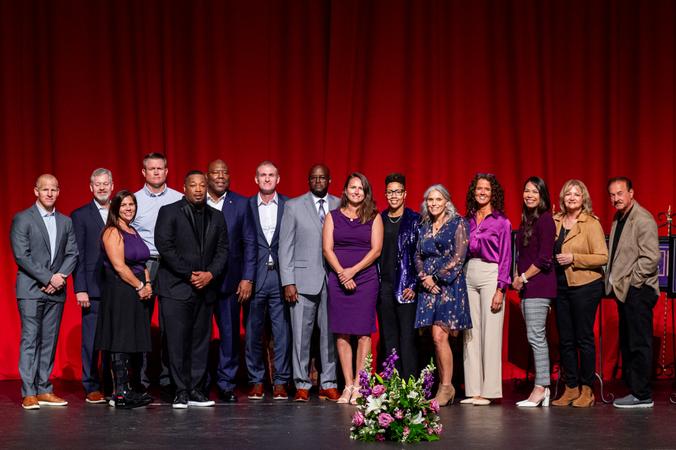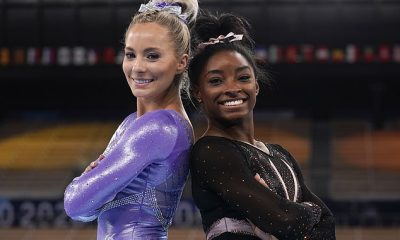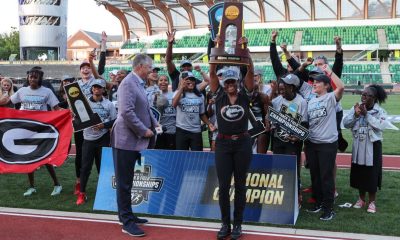The University of Central Arkansas athletic department is no stranger to conference realignment.
Since UCA left the Southland Conference for the Atlantic Sun Conference in 2021, its teams have been a part of many different conference structures.
“We’re in a time, in college athletics, where there’s a lot of instability, right?” UCA Athletic Director Matt Whiting said in an interview Wednesday. “The last five years have been about the most volatile time in college athletics there’s been, and I think the next five to 10 (years) are going to be equally as volatile.”
UCA’s latest venture will be to join, alongside the four other football-playing ASUN schools (Austin Peay, Eastern Kentucky, North Alabama and West Georgia), the remaining three Western Athletic Conference schools (Abilene Christian, Tarleton State and Texas-Arlington) to create the new United Athletic Conference. The move will be official July 1, 2026.
The new conference will feature eight programs with seven, excluding Texas-Arlington, playing football. The move was first reported Wednesday by Ross Dellenger of Yahoo Sports as part of a wave of Football Championship Subdivision conference realignment. That included two WAC schools, Southern Utah and Utah Tech, announcing they would be joining the Big Sky Conference in 2026.
UCA played in the UAC in 2023 and 2024 when it was a football-only league. Southern Utah and Utah Tech played in the nine-team league both seasons, but will move all of their sports in 2026. The remaining seven schools will fold their football, basketball, baseball, softball, track and field, cross country, tennis, volleyball, golf and women’s soccer programs into the same league.
Instead of UCA being the school furthest West in the ASUN, the new conference will see UCA right in the heart of the UAC map.
“We’re really excited about where this places us geographically within the footprint of what will be the United Athletic Conference,” Whiting said. “In the Atlantic Sun, we’ve been traveling to Florida, we’ve been traveling to Charlotte (and) across the Southeast. And so this is more of that South, a little bit of Southwest feel to it within our footprint.
“So we’re positioned well and excited about that, and I’m very excited it is reduced travel for our student-athletes, and I think that’s also a great thing for our fans. With reduced travel will be a greater experience for our student-athletes, and our fans will be able to follow us a little more closely as well.”
UCA’s ties with the ASUN will not cease on July 1, 2026. Its men’s soccer and beach volleyball teams will still compete in the ASUN. As part of the move, the UAC and ASUN announced a “strategic partnership” that will see the two work together to navigate the uncertain future of college athletics in the wake of the House v. NCAA settlement, which UCA has opted out of.
ASUN Commissioner Jeff Bacon will serve as the executive director of the newly formed group. WAC Commissioner Rebekah Ray will also have a leadership position in the consortium.
With college athletics changing by the day, this may not be the final set of schools the UAC features in 2026, when its football season kicks off. Schools like Tarleton State and Abilene Christian are rumored to be potential additions to Football Bowl Subdivision conferences. Whiting said the UAC is also open to the possibility of future expansion.
“I think this gives us an opportunity to consider some strategic expansion,” he said. “I think that’s something we as athletic directors and the presidents of these institutions will consider as we move forward, and I think there could be opportunities there for us.”
Whiting said he’s received a positive response from UCA’s coaches about the new conference. The UAC and ASUN will each retain their own automatic qualifiers for NCAA postseason play.
UCA’s future, like most programs in Division I athletics, remains uncertain. Whiting said he feels this is the best position the Bears can be in for the near future.
“I think it’s an ever-changing environment. And yes, I think there’s going to be more movement in college athletics,” Whiting said. “It’s kind of the cost to pay, and you want to make sure that you position yourself well within where you can be and what works best for the institution. There’s a lot of factors there. And ultimately, we feel very stable with this move, feel it gives us a great opportunity to be successful participating in a conference with like-minded institutions that also sponsor football.”


































































